A good hall has to be about the best facility any community can have. It can be a centre of learning, fun and entertainment for all ages. It’s a meeting place for political and policy debate. It is the hub of any community and, if well run and supported, the sky is the limit as to what a community can achieve.
One hall that fits this description is in Kilkeedy, in north Co Clare. The parish straddles the communities of Tubber and Boston and the hall is essential to the life and well-being of both communities.
This hall started life in 1961 as a three-bay shed and a disused classroom from a school in Spanish Point. Voluntary fundraising and hard work did the rest.
“You have to remember that back then there were a lot more people to volunteer,” says local farmer Michael O’Donoghue, who is the last surviving of the five founding members of the hall committee.
A lifesaver
In the early days dances, visiting players, question times and cards were the bread and butter of the hall. But following the Stardust disaster, strict safety regulations put a stop to the dances, and the visiting players soon went the same road.
The committee had established a card game in 1978, but it wasn’t a success. They tried again in 1981, however, and in the 38 years since then there’s been a card game in Tubber Hall every Tuesday night without fail.
“The card game is a lifesaver for people. In the 1970s we had five shops and a pub in the parish. They are all gone now. If you live on the Tubber side of the parish it’s a 12-mile round trip into Gort just to get a paper and a loaf of bread. There’s no Sunday mass in the parish and Saturdays are shared,” says Michael.
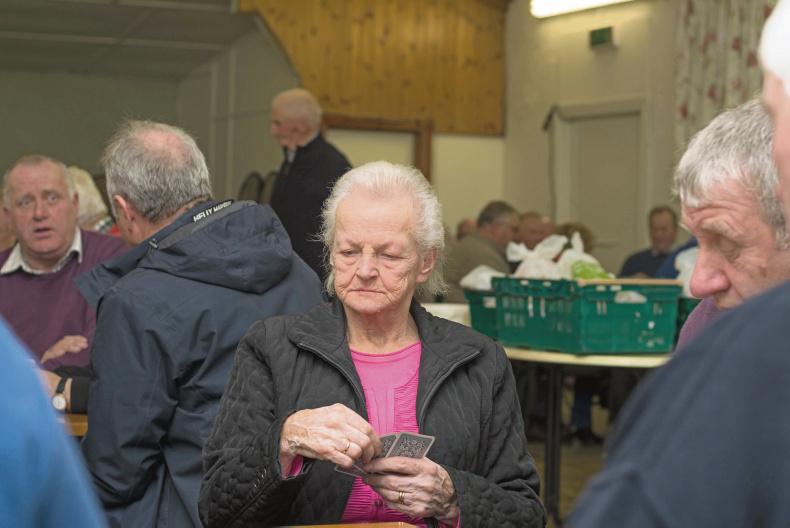
Mary O’Brien from Crusheen. \ Martin Kiely
The card game in Tubber hall attracts up to 85 people every Tuesday night during the winter, with a smaller number of regulars during the summer months. The game starts promptly at 8pm in winter and 8.30pm in summer. It finishes with the distribution of prizes and raffle winners at 10.30pm.
On the night Irish Country Living visited, there were 12 tables of six players in action plus a good few others looking on and catching up with the local news and events. A good 80% of those in the hall were older men. The hall was as warm as toast, with a big stove at one end giving off great heat and creating a really welcoming atmosphere.
It costs €5 to play and an optional €5 to enter the raffle. On the night there were at least 18 parcels of fresh meat, including beef, lamb, chicken and ham, as well as a couple of bottles of whiskey up for grabs.
All inclusive
The hall is busy most nights, with a singing club on Mondays, children’s step dancing on Wednesday and set dancing on a Thursday. There are flower arranging and art classes, Christmas markets showcasing local producers and artists. School Christmas concerts, training courses for the Burren Life Programme. You name it and the hall hosts it.
Most groups pay nothing to use the hall, as they are providing a service to the community. Any income that is received goes to its upkeep. Two years ago the building was insulated and the roof of the kitchen and stores area was raised. Everything was freshly painted this year.
“It’s all run by a voluntary committee and Michael O’Donoghue has given 57 years’ commitment to overseeing and encouraging the use of the hall. The aim is for inclusiveness of all community members and always having an open door, encouraging all activities to meet the diverse needs of the community,” says hall committee secretary Clora Clancy.

Chris Hanrahan, Tierneevin. \ Martin Kiely
What the regulars say
Padraig Flanagan from Gilroe, Tubber, reckons he has only missed seven or eight nights since the cards started back in 1981: “I enjoy the craic and the company. The pub trade is on its last legs and it’s great to have this place to come to.”
Margaret Ruane is from Tiermanagh. She and her husband, Gerry, are suckler and sheep farmers. Gerry also creates jewellery and stained glass.
“As a child I came to the hall for step dancing classes, as an adult it was for set dancing and now it’s the cards. Most card nights up to five of my family are here, it’s a great place,” says Margaret.
John Phipps is a retired farmer from Ballinruan and he says novices are very welcome: “We’ll give everyone a great welcome. The pubs are finished and it’s somewhere for people to come.”
John runs a card game on Friday nights in winter in Ballinruan.
“There’s something in the hall every night and it’s a grand, comfortable place to pass an evening,” says Joan Taffe.
Eileen Naughton from Boston is another regular and she says it’s a great opportunity to meet the neighbours. She also comes to the hall on Monday nights for singing club.
“I don’t know what we’d do without the hall,” says Monica Kenny from Boston. “There’s such comfort here and it’s good to get out for an evening.”
Seamus Nohilly was a priest in the parish for four and a half years, before being moved last August. It was his first night back for cards: “There’s a great community effort involved in keeping the hall in good condition and running the card game. That effort has made the hall the focal point for the community. The community has lost a lot of its services, but the two primary schools held their numbers and that’s progress and hope for the future.”

Mairead Lavery of Irish Country Living. \ Martin Kiely
Playing the game
Irish Country Living joined in but wasn’t much of an addition to the team, which only managed to win seven out of 16 games. They play what’s called ‘the old game’ where there’s three on a team. To win a game, a team has to make three ‘combs’ (3x15) similar to three tricks in ‘45’or two ‘20s’.
If a team wins all five lifts then that’s an ‘out’ but the team must win an additional ‘comb’ to win the game and move to the next table.
“Moving through the tables ensures you get to chat with lots of people and that makes the cards very sociable,” says Michael. And they certainly were. If you want to join in the fun just turn up at 8pm on Tuesday night in Tubber hall.
Read more
All changed, changed forever for the Clancy family
Future looks bright for agri tourism
A good hall has to be about the best facility any community can have. It can be a centre of learning, fun and entertainment for all ages. It’s a meeting place for political and policy debate. It is the hub of any community and, if well run and supported, the sky is the limit as to what a community can achieve.
One hall that fits this description is in Kilkeedy, in north Co Clare. The parish straddles the communities of Tubber and Boston and the hall is essential to the life and well-being of both communities.
This hall started life in 1961 as a three-bay shed and a disused classroom from a school in Spanish Point. Voluntary fundraising and hard work did the rest.
“You have to remember that back then there were a lot more people to volunteer,” says local farmer Michael O’Donoghue, who is the last surviving of the five founding members of the hall committee.
A lifesaver
In the early days dances, visiting players, question times and cards were the bread and butter of the hall. But following the Stardust disaster, strict safety regulations put a stop to the dances, and the visiting players soon went the same road.
The committee had established a card game in 1978, but it wasn’t a success. They tried again in 1981, however, and in the 38 years since then there’s been a card game in Tubber Hall every Tuesday night without fail.
“The card game is a lifesaver for people. In the 1970s we had five shops and a pub in the parish. They are all gone now. If you live on the Tubber side of the parish it’s a 12-mile round trip into Gort just to get a paper and a loaf of bread. There’s no Sunday mass in the parish and Saturdays are shared,” says Michael.

Mary O’Brien from Crusheen. \ Martin Kiely
The card game in Tubber hall attracts up to 85 people every Tuesday night during the winter, with a smaller number of regulars during the summer months. The game starts promptly at 8pm in winter and 8.30pm in summer. It finishes with the distribution of prizes and raffle winners at 10.30pm.
On the night Irish Country Living visited, there were 12 tables of six players in action plus a good few others looking on and catching up with the local news and events. A good 80% of those in the hall were older men. The hall was as warm as toast, with a big stove at one end giving off great heat and creating a really welcoming atmosphere.
It costs €5 to play and an optional €5 to enter the raffle. On the night there were at least 18 parcels of fresh meat, including beef, lamb, chicken and ham, as well as a couple of bottles of whiskey up for grabs.
All inclusive
The hall is busy most nights, with a singing club on Mondays, children’s step dancing on Wednesday and set dancing on a Thursday. There are flower arranging and art classes, Christmas markets showcasing local producers and artists. School Christmas concerts, training courses for the Burren Life Programme. You name it and the hall hosts it.
Most groups pay nothing to use the hall, as they are providing a service to the community. Any income that is received goes to its upkeep. Two years ago the building was insulated and the roof of the kitchen and stores area was raised. Everything was freshly painted this year.
“It’s all run by a voluntary committee and Michael O’Donoghue has given 57 years’ commitment to overseeing and encouraging the use of the hall. The aim is for inclusiveness of all community members and always having an open door, encouraging all activities to meet the diverse needs of the community,” says hall committee secretary Clora Clancy.

Chris Hanrahan, Tierneevin. \ Martin Kiely
What the regulars say
Padraig Flanagan from Gilroe, Tubber, reckons he has only missed seven or eight nights since the cards started back in 1981: “I enjoy the craic and the company. The pub trade is on its last legs and it’s great to have this place to come to.”
Margaret Ruane is from Tiermanagh. She and her husband, Gerry, are suckler and sheep farmers. Gerry also creates jewellery and stained glass.
“As a child I came to the hall for step dancing classes, as an adult it was for set dancing and now it’s the cards. Most card nights up to five of my family are here, it’s a great place,” says Margaret.
John Phipps is a retired farmer from Ballinruan and he says novices are very welcome: “We’ll give everyone a great welcome. The pubs are finished and it’s somewhere for people to come.”
John runs a card game on Friday nights in winter in Ballinruan.
“There’s something in the hall every night and it’s a grand, comfortable place to pass an evening,” says Joan Taffe.
Eileen Naughton from Boston is another regular and she says it’s a great opportunity to meet the neighbours. She also comes to the hall on Monday nights for singing club.
“I don’t know what we’d do without the hall,” says Monica Kenny from Boston. “There’s such comfort here and it’s good to get out for an evening.”
Seamus Nohilly was a priest in the parish for four and a half years, before being moved last August. It was his first night back for cards: “There’s a great community effort involved in keeping the hall in good condition and running the card game. That effort has made the hall the focal point for the community. The community has lost a lot of its services, but the two primary schools held their numbers and that’s progress and hope for the future.”

Mairead Lavery of Irish Country Living. \ Martin Kiely
Playing the game
Irish Country Living joined in but wasn’t much of an addition to the team, which only managed to win seven out of 16 games. They play what’s called ‘the old game’ where there’s three on a team. To win a game, a team has to make three ‘combs’ (3x15) similar to three tricks in ‘45’or two ‘20s’.
If a team wins all five lifts then that’s an ‘out’ but the team must win an additional ‘comb’ to win the game and move to the next table.
“Moving through the tables ensures you get to chat with lots of people and that makes the cards very sociable,” says Michael. And they certainly were. If you want to join in the fun just turn up at 8pm on Tuesday night in Tubber hall.
Read more
All changed, changed forever for the Clancy family
Future looks bright for agri tourism






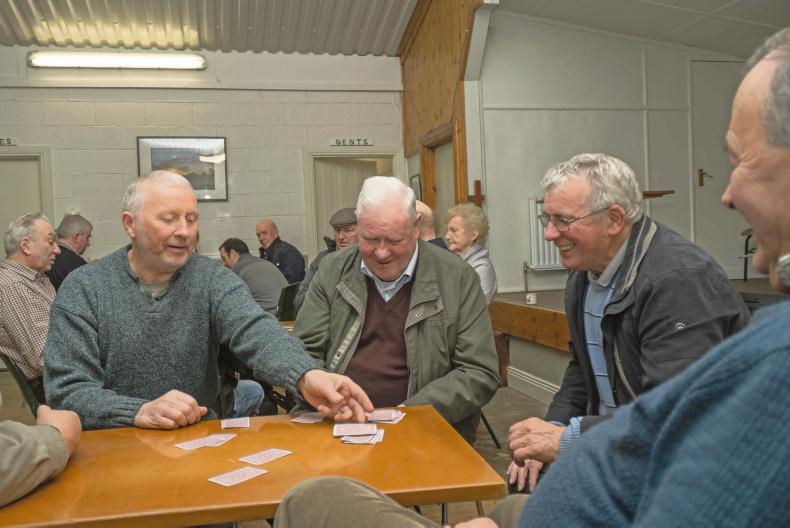

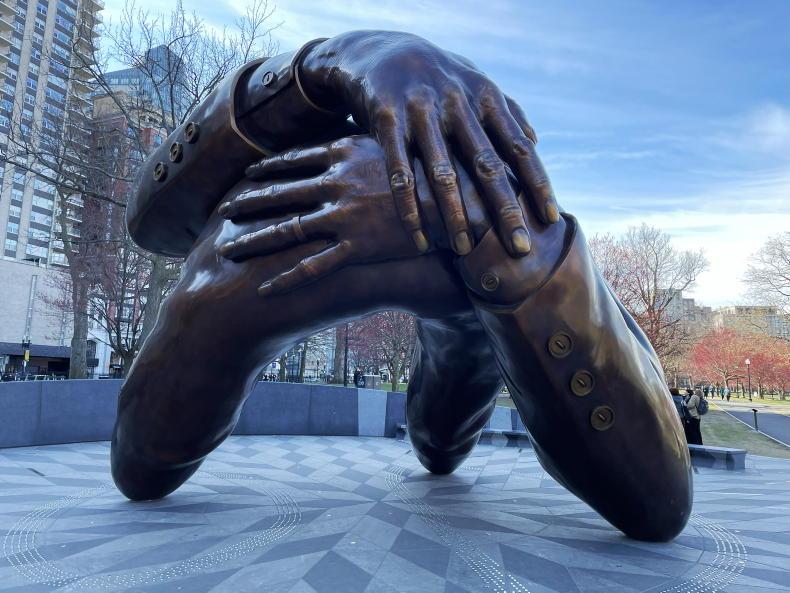

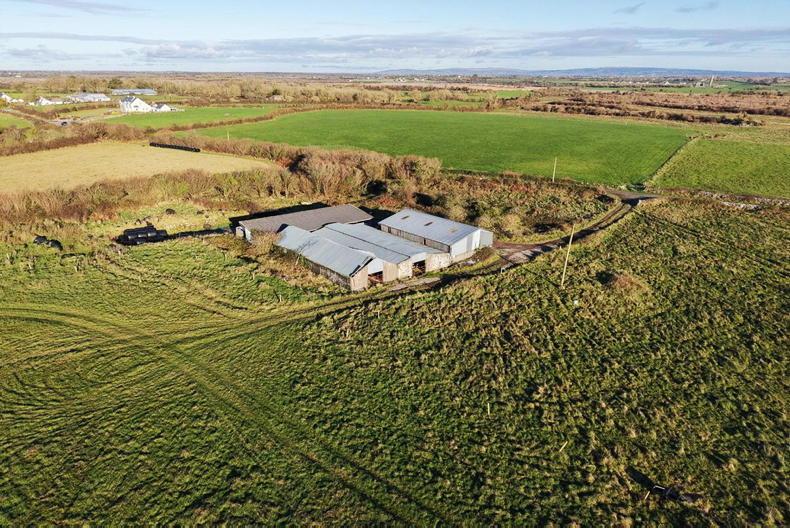
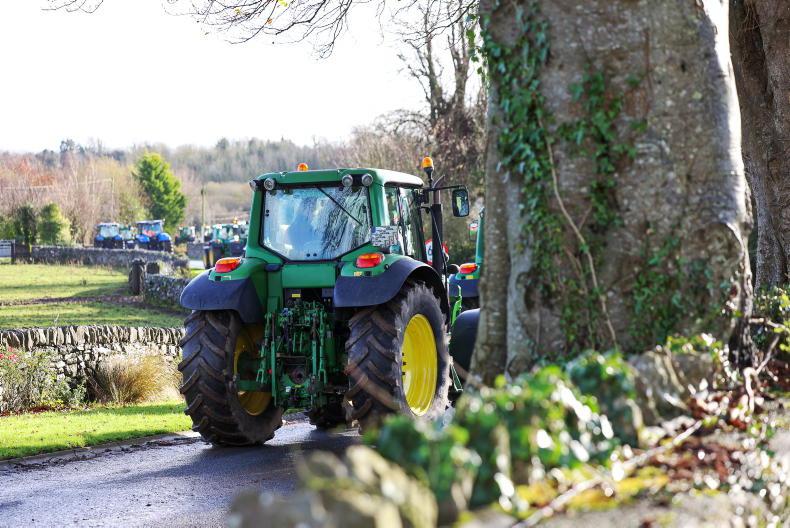
SHARING OPTIONS